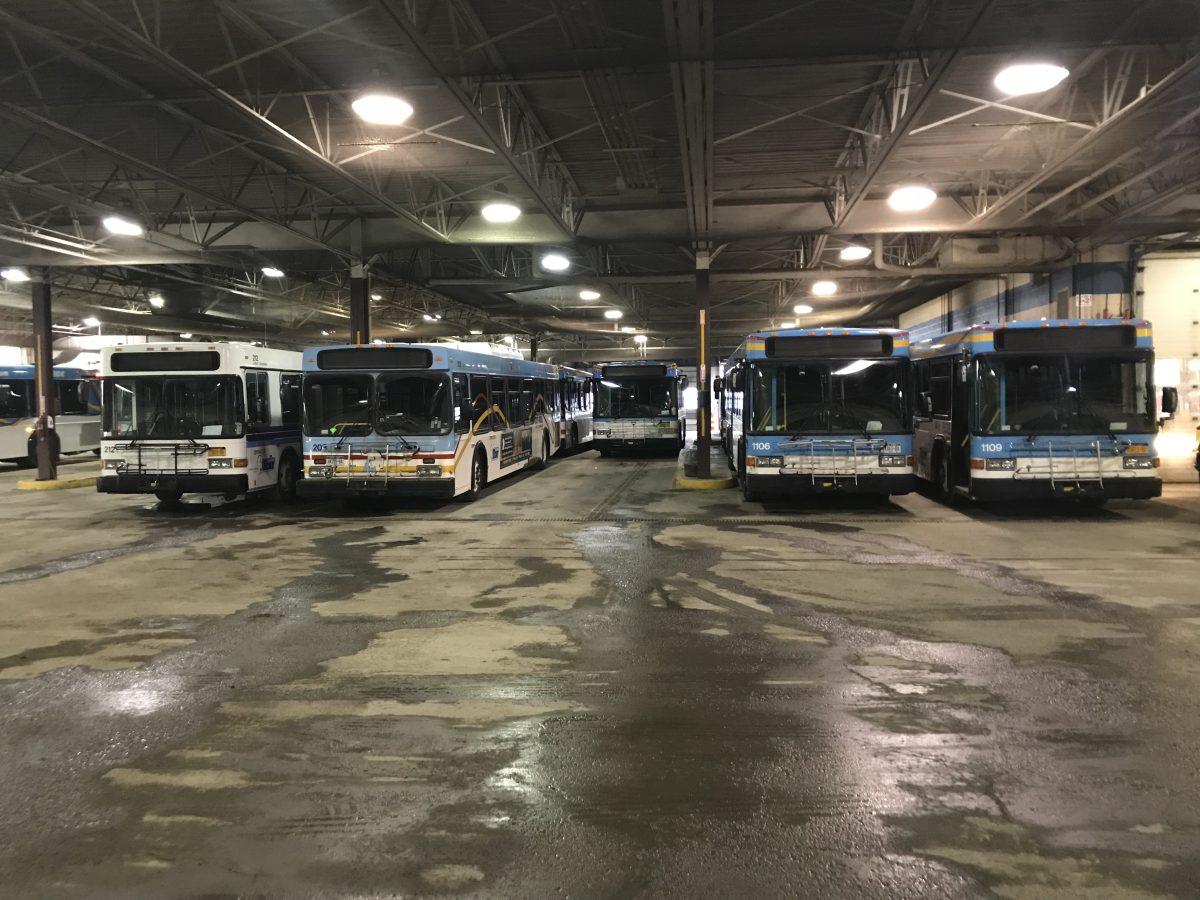Key Points:
- Tompkins Consolidated Area Transit (TCAT) purchased 11 new buses.
- TCAT operates 54 buses, on 34 routes.
- TCAT is interested in bringing electric buses to Ithaca in the future.
New Buses
One of Scot Vanderpool’s first projects when he became TCAT general manager in 2017 was to roll out a fleet of new buses.
The 11 new buses, which have been on the road for a month, look similar to older models but are more efficient and have features like lower windshield-glare for drivers.
“We’ve had a lot of good input from the drivers, they really like to drive them,” Vanderpool said.
Vanderpool said the buses cost approximately $450,000 each.
TCAT now has a total of 54 buses. One is out of service indefinitely due to a fire last week.

Fossil-Fuel Free
Vanderpool says he would like TCAT to become a fossil-fuel free transit agency in the future. Electric transit buses are becoming common in cities like Los Angeles, New York, and San Francisco, but they come at a steep cost: $1 million dollars—double the cost of a diesel bus.
Vanderpool says the electric technology is not yet ready for Ithaca’s climate or geography.
“We have a lot of hills here, that is something we worry about. Electric buses can get up the hills very nicely, our concern is about the battery,” he said. “When you talk about electric buses, it’s all about the charge.”
Vanderpool says he hopes to get funding for the electric buses through a federal or state grant and that the mechanical staff at TCAT wants to learn the maintenance and features of the bus.
“We really want to learn the technology… I think we have that going for us,” he said. “It’d be a great learning experience for us to get one of these buses so that we can update our whole staff on how the process works.”

Improving service and staffing
TCAT has faced a staffing challenge for years, with employees being forced to work overtime. The agency has hired a recruiter to bring in new drivers and alleviate the driver shortage. TCAT now has 80 full-time drivers, and Vanderpool says mandatory overtime is becoming less-and-less.
Vanderpool, who was a transit driver for more than a decade, says he is committed to improving morale.
“I eat lunch with the drivers almost every day,” he said. “We want their input, they’re the ones out on the road all the time—the drivers’ input is really everything.”
Among the other TCAT upgrades is an app that allows people to track buses in real-time. All but one of the buses can be tracked in real-time, and riders are notified of any delays or detours buses take.
“That’s something I haven’t seen in transportation… we can immediately get ahold of our customers from our dispatch,” Vanderpool said.
He wants to take technology a step further by adding Wi-Fi to buses to improve passenger experience.
“We think that will help with rural routes and people on the bus a long time,” Vanderpool said.







